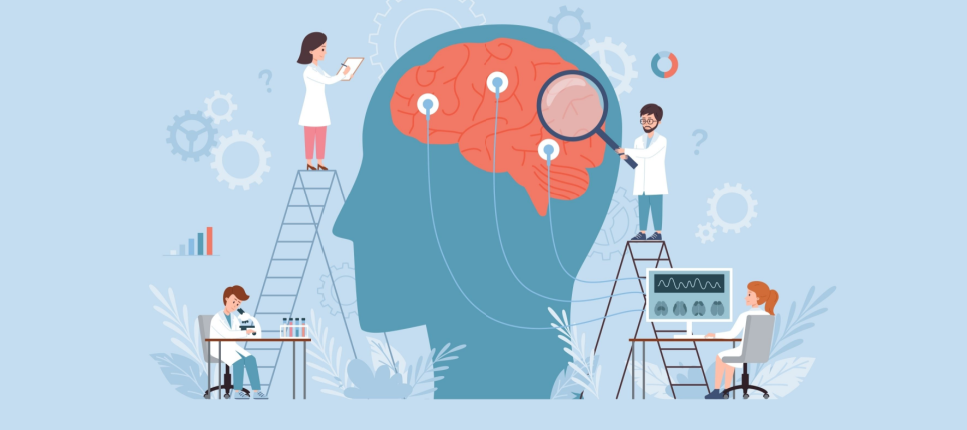Do you know what metacognition is? Can you describe what it makes possible? How it develops, and who can develop it? Do you know its importance in learning? Test your knowledge by answering the following five questions.
1. True or false? Based on its etymology, metacognition can be summed up as the ability to go “beyond” the “act of learning.”
CORRECT ANSWER
TRUE
Indeed, metacognition can be summed up as the ability to go “beyond” (meta) the “act of learning” (cognition).
Some 500 years B.C., great thinkers were already juggling with this notion of metacognition: we find it in the motto “Know thyself” that Socrates made his own, as well as in this excerpt from Confucius’ Talks: “Do you want me to teach you the way to arrive at knowledge? What you know, know that you know it; what you don’t know, know that you don’t know it: that is true knowledge.”
However, the American psychologist John H. Flavell first named the notion of metacognition in the 1970s and set out its theoretical foundations, which are still considered today. For Flavell, metacognition “refers to the subject’s knowledge of their own cognitive processes and products. It also refers to the active control, regulation and orchestration of these processes” (Flavell quoted by Doly, 1997). After him, several other academics explored the notion and contributed to the foundation of its understanding and possibilities.
Find out more:
2. Which of the following statements about metacognition is incorrect?
A) It’s sometimes associated with the idea of “learning how to learn,” but it’s more accurate to summarize it as a set of “cognitions about our cognitions” or “knowledge of our cognitive processes.”
B) This faculty enables us to identify our mistakes and successes and to understand their origins.
C) It is developed in childhood and cannot really be improved upon in adulthood.
D) It is mobilized whenever we try to learn something new that goes beyond simple automatism; in other words, in any task that requires planning or self-reflection.
CORRECT ANSWER
C.
Metacognition is developed in childhood but can be improved throughout life.
It’s also important to know that it can be applied to both abstract and concrete (so-called “manual”) tasks. In the latter case, to illustrate, we often use the example of assembling a piece of furniture from a kit, a task that requires us to reactivate our knowledge and skills in furniture assembly and to plan it, to a certain extent, in order to be able to carry it out successfully (achieve a goal).
By developing our metacognitive skills, we can hope to improve the quality of our learning as well as our autonomy as learners, two major assets for success in self-training and elearning.
Find out more:
3. The following are all components of metacognition, except one. Which is it?
A) Metacognitive neurons
B) Metacognitive knowledge
C) Metacognitive strategies
D) Metacognitive experiences
CORRECT ANSWER
A.
Although neurons—the basic cells of the nervous system and the brain—are obviously involved in metacognition as in all cerebral processes, our brains do not possess “metacognitive” neurons.
The main general definitions of metacognition include three components: metacognitive knowledge, metacognitive strategies and metacognitive experiences.
Metacognitive knowledge includes facts, beliefs, and memories. It is not necessarily accurate and may be incomplete. Metacognitive knowledge has the potential to help us achieve a goal, but it can also get in the way.
Also known as metacognitive “skills” or “abilities,” metacognitive strategies are of two kinds and are consciously applied. The first is metacognitive monitoring, and the second is metacognitive control.
Finally, metacognitive experiences are the “product of the process of monitoring cognition” (Büchel, 2013a; Efklides, 2001). They are made possible by linking knowledge and metacognitive strategies to achieve a goal. Emotions and motivation have a considerable role in the way we experience metacognition.
Find out more: The 3 components of metacognition
4. Which of the following statements about metacognitive skills are true? There are several possible answers.
A) For the OECD, an education fit for the 21st century must give a central place to the assessment of metacognitive skills in the overall evaluation of young learners.
B) Adult learners, with their maturity, experience, and marked need for autonomy, are in a good position to develop their metacognitive skills fully.
C) Knowing how to identify what you know and what you don’t know, asking for help when necessary and learning from failure are examples of metacognitive skills.
D) Seeing and doing things differently, such as realizing that you can become a better learner or helping yourself by setting goals, are examples of metacognitive skills.
CORRECT ANSWER
A., B., C. and D.
Indeed, the OECD insists that an education fit for the 21st century must give a central place to the assessment of metacognitive skills in the overall evaluation of young learners. While it is indeed desirable to start cultivating these skills in early school, it’s never too late to start. On the contrary! With their maturity, experience and marked need for autonomy, adult learners are well-placed to fully develop these skills. While there’s no formal, exhaustive list of metacognitive skills, a number have been identified in studies on the subject, including those described in points C and D.
Find out more:
5. Select the correct term to complete the statements about metacognition.
Terms: metacognitive strategies, their effectiveness, metacognition, metacognitive control
In self-regulated learning, it is ________ that dynamically orchestrates the other fundamental components of learning: cognition, motivation and volition. Metacognition is a process of reflection on the way we think and learn, comprising three components, including ________. These involve, firstly, metacognitive “monitoring,” a process of self-observation that involves monitoring and evaluating our cognitive strategies to see if they are on track to achieve our goal; secondly, ________, which involves taking action based on the observations made, modifying our strategies as necessary. To sharpen their self-observation skills and better identify counter-productive habits, learners should take notes on factors likely to affect ________ and on which they can intervene (place of study, time of day, time invested, etc.).
CORRECT ANSWER
The complete, correct statements are as follows:
In self-regulated learning, it is metacognition that dynamically orchestrates the other fundamental components of learning: cognition, motivation and volition. Metacognition is a process of reflection on the way we think and learn, comprising three components, including metacognitive strategies. Metacognitive strategies involve, firstly, metacognitive monitoring, a process of self-observation in which we monitor and evaluate our cognitive strategies to see if they are on track to achieve our goal; and, secondly, metacognitive control, in which we act on our observations, modifying our strategies as necessary. To sharpen their self-observation skills and better identify counter-productive habits, learners are well advised to take notes on the factors likely to affect their effectiveness and on which they can intervene (place of study, time of day, time invested, etc.).
Find out more: 3 tips for self-regulated learning
Author:
Catherine Meilleur
Creative Content Writer @KnowledgeOne. Questioner of questions. Hyperflexible stubborn. Contemplative yogi.
Catherine Meilleur has over 15 years of experience in research and writing. Having worked as a journalist and educational designer, she is interested in everything related to learning: from educational psychology to neuroscience, and the latest innovations that can serve learners, such as virtual and augmented reality. She is also passionate about issues related to the future of education at a time when a real revolution is taking place, propelled by digital technology and artificial intelligence.






